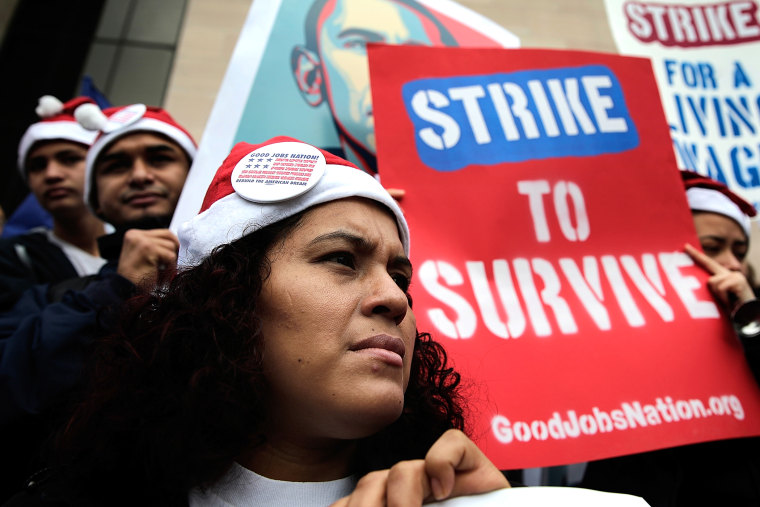The Washington, D.C. city council voted unanimously Tuesday to raise its minimum wage from $8.25 to $11.50 per hour by 2016. Although Democratic Mayor Vincent Gray had previously opposed the measure, unanimous approval from the city council makes it unlikely he would be able to successfully veto it.
Other cities and states to raise their minimum wage in recent months include New Jersey, California, and SeaTac, Wash. Of those three, only SeaTac approved a higher minimum wage than the nation's capital, setting the city's minimum wage at $15 per hour.
The current federal minimum wage is $7.25 per hour. Recent polling shows strong support for raising it to at least $9 per hour. The Obama administration recently declared its support for a proposed law which would raise the federal minimum wage to $10.10, higher than the president's original proposal of $9. Had the federal minimum wage kept up with inflation since 1968, it would now be worth nearly $11.
This is not the first time in recent months that the Washington, D.C. city council has considered raising wages for some workers in the city. Over the summer, the council passed the Large Retailer Accountability Act, which would have required that certain large employers pay at least $12.50 per hour. Walmart, which was considering expanding into D.C., opposed the bill, and Mayor Gray ultimately vetoed the bill.
Workers employed by federal contractors in D.C. have been agitating for a pay hike of their own. Hundreds of them have participated in a series of strikes, demanding that the president sign an executive order requiring federal contractors to pay higher wages. The demand has garnered support from progressive members of Congress like Minnesota Democratic Rep. Keith Ellison. The president has yet to respond.
